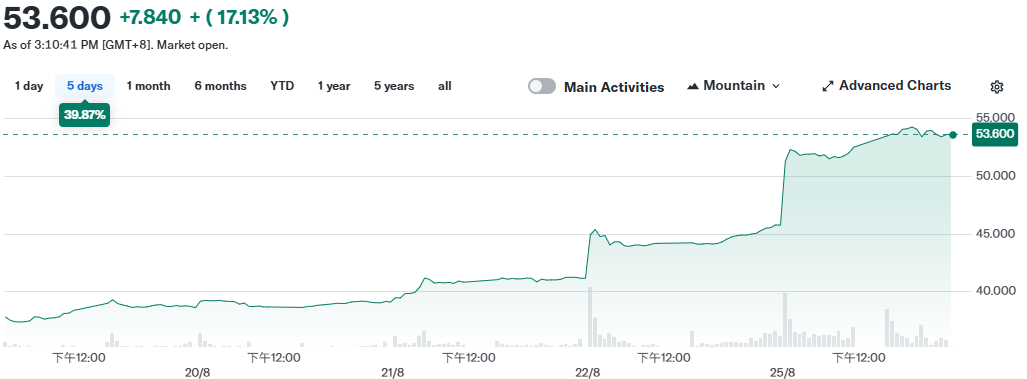NIO Soars 40% in 3 Days After Radical ES8 Price Cuts; "Betting for Survival" Strategy Ignites Rally

TradingKey - NIO's Hong Kong shares continued their recent strong performance in afternoon trading, with the stock price rising steadily. As of press time, the gain had expanded to 17.13%. The company's cumulative gain over the past three trading days has approached 40%, with trading volume exceeding HK$1.1 billion.

Source: Yahoo Finance
On the evening of August 21, NIO officially announced the pre-sale prices for its new ES8 model. The vehicle will be offered in three different versions and is scheduled to officially launch and begin deliveries by late September.
In terms of pricing strategy, the new ES8 shows a significant downward adjustment. For full vehicle purchase, the pre-sale price starts at RMB 416,800. If customers choose the Battery as a Service (BaaS) option, the pre-sale price starts as low as RMB 308,800. This price is RMB 111,200 lower than the starting price of RMB 528,000 for the second-generation NIO ES8 at launch, and significantly below the market's previously expected level of around RMB 500,000.
This unexpectedly aggressive pricing strategy quickly became a market focus and directly drove subsequent stock price increases. On August 21, NIO's Hong Kong shares had already risen nearly 5%, successfully breaking through the HK$40 mark. On August 22, the gain expanded further to nearly 10% at the market open, with the stock price stabilizing above HK$45.
In response to this aggressive pricing strategy for the new ES8, NIO Chairman William Li addressed the issue. He admitted that the new pricing strategy would indeed have certain impacts on NIO's existing user base, but the company made this move to participate more effectively in the current intense market competition, necessitating strategic adjustments.
Li acknowledged that the second-generation ES8 had errors in product definition, and one of the core missions of the new ES8 is to correct these mistakes to better meet market demands. He emphasized that as a relative newcomer to the automotive industry, NIO has no room for complacency, and after careful consideration, the team made what they believe is the most reasonable decision for the company's overall development to ensure NIO can "survive" and achieve long-term growth.
As a new energy vehicle manufacturer backed by Tencent and historically targeting the premium market, NIO has faced increasingly intense competitive pressures in recent years. Numerous competitors have launched functionally similar but more price-attractive models, continuously eroding premium and mid-to-high-end market share, forcing NIO to adjust its strategy to seek greater survival space.







